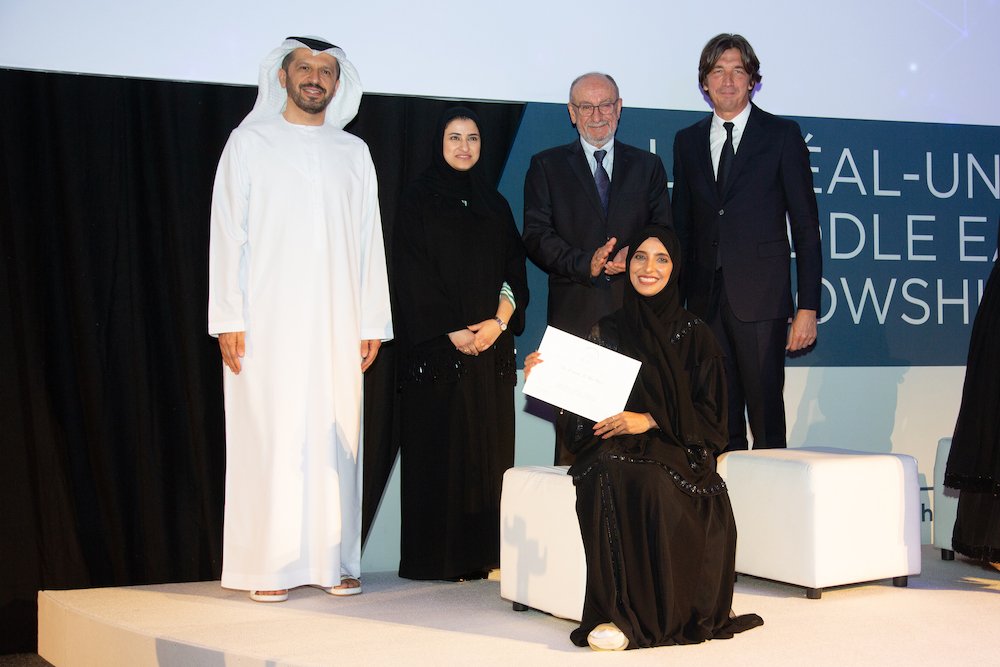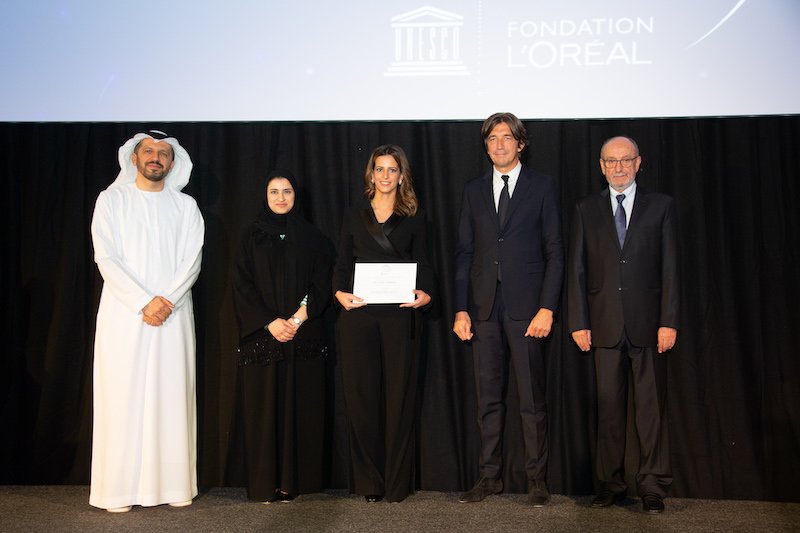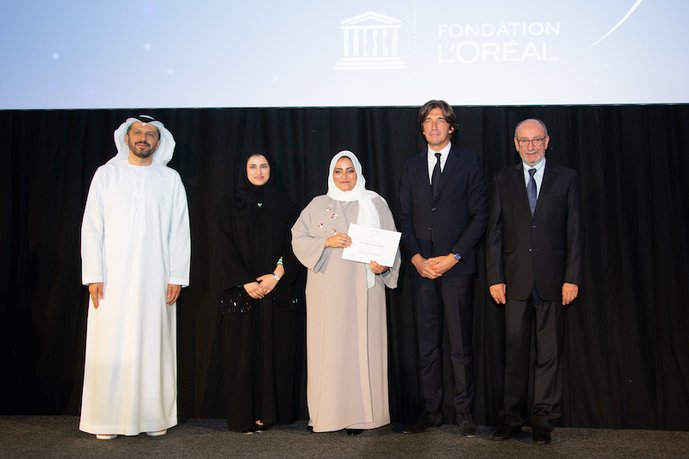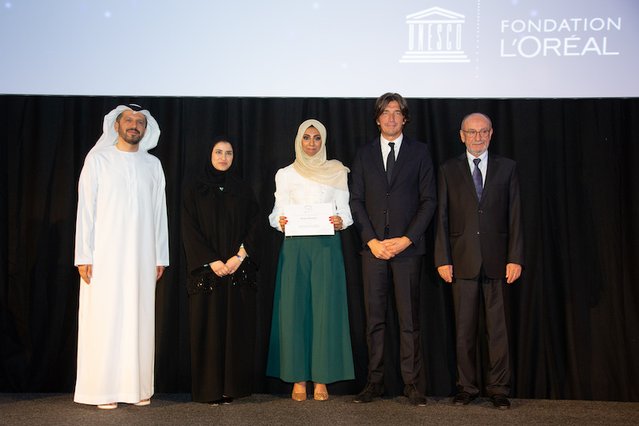L’Oréal-UNESCO for Women in Science Program 2019 recognizes outstanding female scientists in the Middle East
The 6th edition of the L'Oréal-UNESCO For Women in Science Middle East Fellowship has recognized six leading women scientists who have made extraordinary discoveries in their fields in 2019.
This initiative is part of the global L'Oréal–UNESCO For Women in Science program that has recognized over 3,200 outstanding researchers in its 21-year history, three of whom have gone on to win the Nobel Prizes.
In 2019, the program has received the endorsement of H.E. Sarah Bint Yousif Al Amiri, Minister of State of Advanced Sciences, and announced its partnership with Khalifa University of Science and Technology.
An awards ceremony to honor the recipients took place in Dubai on November 11th where Dr. Maryam AlYammahi (UAE), Dr. Fatma Al Ma'Mari (Oman), Dr. Wafa Audah Altalhi (Saudi Arabia) and Dr. Nour Alsabeeh (Kuwait) each received EUR 20,000 in the Postdoctorate Researchers category. Wafaa Ramadan (UAE) and Asma Al-Amoodi (Saudi Arabia) each received EUR 8,000 in the Ph.D. Students category, in recognition of their contribution to science and their aspiring research work.
About the 2019 Fellows:Postdoctorate Researchers category
- Dr. Maryam AlYammahi (UAE): For her research on developing a new method for efficient access and retrieval of information from Big Data systems
- Dr. Fatma Al Ma'Mari (Oman): For her research on creating new magnetic materials to replace rare earth materials as a major component in energy production
- Dr. Wafa Audah Altalhi (Saudi Arabia): For her research on improving patient health by moving away from the reliance on organ donors
- Dr. Nour Alsabeeh (Kuwait): For her research on investigating mechanisms underlying the development of type 2 diabetes
Ph.D. Students category
- Asma Al-Amoodi (Saudi Arabia): For her research on enhancing the use of certain stem cells for the treatment of haematological diseases like leukemia
- Wafaa Ramadan (UAE): For her research on improving the success rate of breast cancer diagnosis and treatment among women



